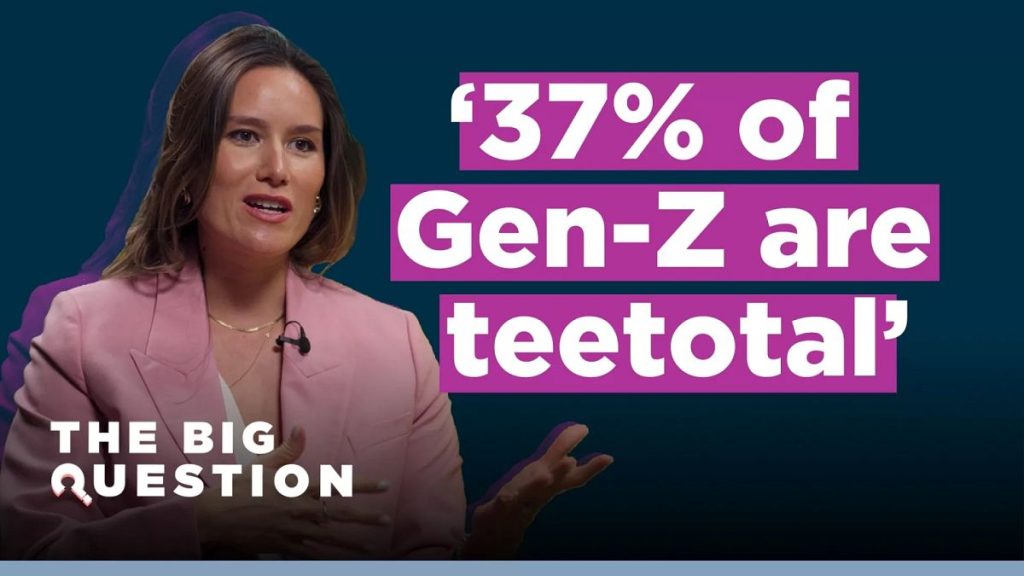The Rise of Functional Beverages and the Shifting Landscape of the Drinks Industry
The European drinks market is experiencing a seismic shift, driven by a growing trend towards non-alcoholic beverages, particularly among younger generations. This movement is not merely a fleeting trend, but a fundamental change in consumer behavior, fueled by health consciousness, evolving social norms, and a desire for alternatives to traditional alcoholic drinks. Olivia Ferdi, co-founder of Trip, a leading functional drinks brand, offers insights into this evolving landscape and the opportunities it presents for innovative beverage companies.
Trip, specializing in drinks containing CBD, magnesium, and other natural botanicals known for their calming properties, has experienced remarkable growth, reflecting the increasing demand for beverages that address specific needs beyond simple hydration. Functional drinks, designed to deliver immediate benefits, are gaining traction, with Trip leading the charge in the "calm" and "relaxation" category. This trend is fueled by the pervasive nature of stress in modern life, affecting individuals across all demographics. Ferdi emphasizes the universality of this experience, highlighting the persistent need for products that effectively alleviate stress and anxiety.
The younger generation, particularly Gen Z, is at the forefront of this shift, exhibiting significantly lower alcohol consumption rates than previous generations. Their social rituals and preferences differ significantly, prompting them to seek innovative and exciting non-alcoholic options rather than simply mimicking traditional alcoholic beverages. This generation prioritizes taste, demanding beverages that are genuinely enjoyable, surpassing the limitations of merely being a "healthy" or "functional" alternative. Their rejection of the traditional pub culture further underscores the need for new social experiences centered around non-alcoholic alternatives.
The increasing popularity of movements like Dry January, where millions of Europeans abstain from alcohol for a month, further contributes to this shift. This phenomenon is not confined to January, but translates into sustained changes in consumer behavior throughout the year. The desire for healthier lifestyles, coupled with concerns about the negative effects of alcohol, including "hangxiety," further fuels this growing trend. The over-connectedness and constant screen time prevalent in modern society exacerbate stress levels, further driving the demand for beverages that promote relaxation and well-being.
Olivia Ferdi emphasizes the importance of innovation in catering to this evolving market. Trip’s success lies in combining effective ingredients with appealing flavors and convenient formats, creating a product that resonates with consumers seeking both functionality and enjoyment. The emphasis on fun and social connection further enhances the appeal, positioning these beverages as viable alternatives to traditional alcoholic drinks in social settings.
While Gen Z is leading this change, the trend towards reduced alcohol consumption extends across other demographics. This shift has significant implications for the retail and hospitality industries, necessitating a broader and more diverse offering of non-alcoholic beverages. The emergence of sophisticated and appealing alternatives is transforming social gatherings and challenging established norms around alcohol consumption. The drinks industry must adapt to these changing demands, recognizing the growing market for innovative and delicious non-alcoholic options that cater to a wider range of consumer needs and preferences.
The success of brands like Trip underscores the potential of the functional beverage market. By addressing specific needs, such as stress reduction and relaxation, these beverages offer a compelling alternative to traditional drinks. The focus on taste and enjoyment, combined with the use of natural and beneficial ingredients, resonates with health-conscious consumers seeking a more balanced and mindful approach to their well-being. The younger generation’s embrace of this trend signals a significant shift in the cultural landscape, paving the way for a future where non-alcoholic beverages play a central role in social gatherings and everyday life.
The traditional alcohol industry faces increasing pressure to adapt to these evolving consumer preferences. The demand for non-alcoholic options is not merely a niche market, but a growing force reshaping the entire beverage landscape. Companies must innovate and diversify their offerings to remain competitive in this changing market. The success of functional beverage brands demonstrates the potential for growth and innovation in the non-alcoholic sector, challenging the dominance of traditional alcoholic beverages.
The cultural shift away from alcohol consumption reflects broader societal changes, including a growing emphasis on health and wellness, a desire for greater control over one’s mental and emotional state, and a rejection of traditional social norms. The younger generation’s leadership in this movement suggests that these trends are not temporary fads, but fundamental shifts in consumer behavior that will continue to shape the future of the drinks industry. The focus on functionality, taste, and social connection will be crucial for companies seeking to thrive in this evolving landscape.
The future of the drinks industry lies in embracing innovation and meeting the evolving needs of consumers. Functional beverages represent a significant opportunity for growth and diversification, challenging the traditional dominance of alcoholic drinks. As consumer preferences continue to shift towards healthier and more mindful choices, the demand for sophisticated and appealing non-alcoholic alternatives will only continue to grow. The success of brands like Trip exemplifies the potential of this market, paving the way for a future where non-alcoholic beverages play a central role in social gatherings and everyday life.
The alcohol industry must adapt to this changing landscape by diversifying its offerings and embracing the growing market for non-alcoholic alternatives. The younger generation’s rejection of traditional drinking culture signals a significant cultural shift, with far-reaching implications for the future of the drinks industry. By focusing on functionality, taste, and social connection, beverage companies can tap into this growing market and meet the evolving needs of consumers seeking healthier and more mindful choices. The rise of functional beverages represents a significant opportunity for innovation and growth, transforming the drinks landscape and offering consumers a wider range of options that align with their values and lifestyles.














